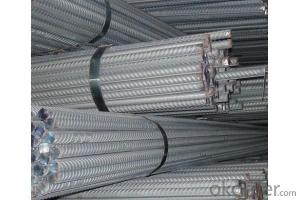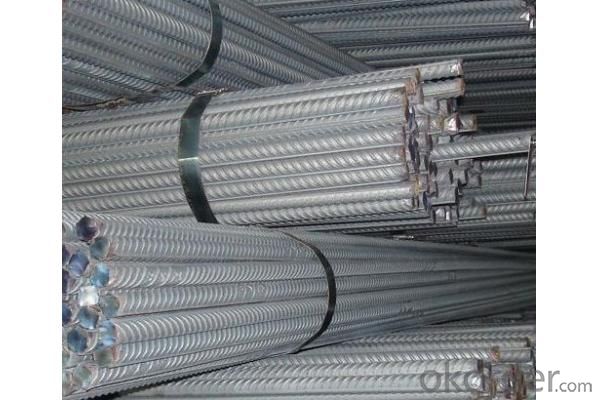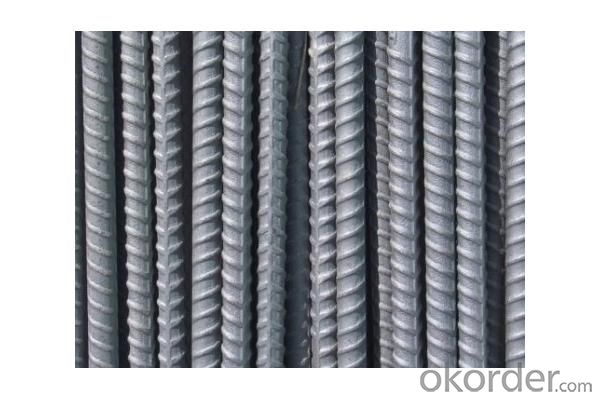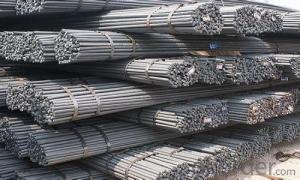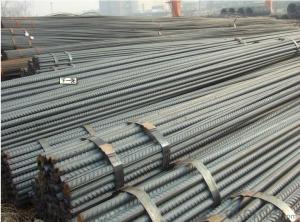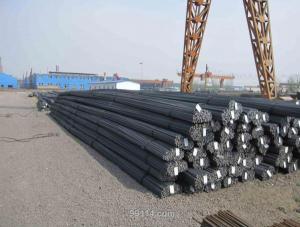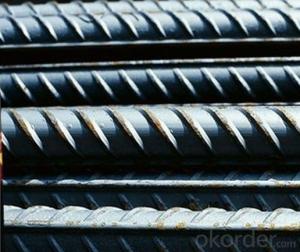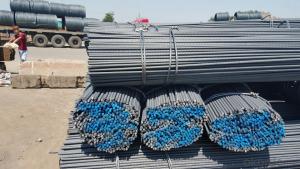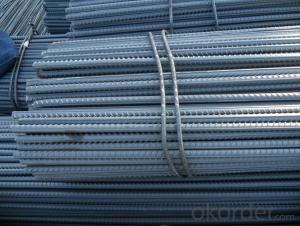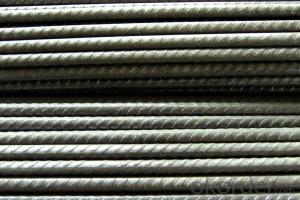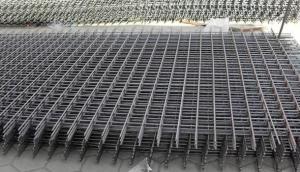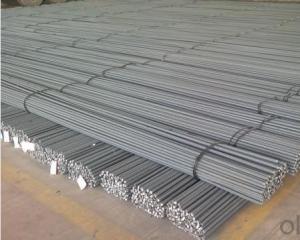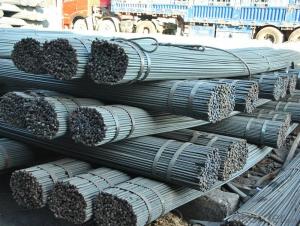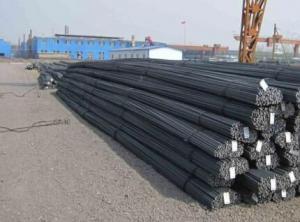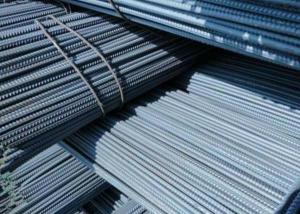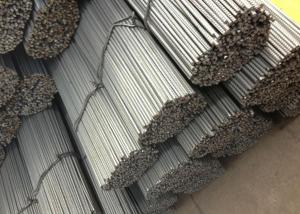High Quality Reinforcing Steel Rebars
- Loading Port:
- China Main Port
- Payment Terms:
- TT or LC
- Min Order Qty:
- -
- Supply Capability:
- -
OKorder Service Pledge
OKorder Financial Service
You Might Also Like
Product Description:
OKorder is offering High Quality Reinforcing Steel Rebars at great prices with worldwide shipping. Our supplier is a world-class manufacturer of steel, with our products utilized the world over. OKorder annually supplies products to African, South American and Asian markets. We provide quotations within 24 hours of receiving an inquiry and guarantee competitive prices.
Product Applications:
High Quality Reinforcing Steel Rebars are ideal for structural applications and are widely used in the construction of buildings and bridges, and the manufacturing, petrochemical, and transportation industries.
Product Advantages:
OKorder's High Quality Reinforcing Steel Rebars are durable, strong, and wide variety of sizes.
Main Product Features:
· Premium quality
· Prompt delivery & seaworthy packing (30 days after receiving deposit)
· Can be recycled and reused
· Mill test certification
· Professional Service
· Competitive pricing
Product Specifications:
Manufacture: Hot rolled
Grade: HRB335,HRB400,HRB500
Size: 6mm-32mm
Certificates: ISO, SGS, BV, CIQ
Length: 6m – 12m, as per customer request
Packaging: Export packing, nude packing, bundled
| DEFORMED BAR | |
| SIZE d(mm) | theoretical kg/m |
| 6 | 0.222 |
| 8 | 0.395 |
| 10 | 0.617 |
| 12 | 0.888 |
| 14 | 1.21 |
| 16 | 1.58 |
| 18 | 2 |
| 20 | 2.47 |
| 22 | 2.98 |
| 25 | 3.85 |
| 28 | 4.83 |
| 32 | 6.31 |
Grade | Technical data of the original chemical composition (%) | |||||||
C | Mn | Si | S | P | V | |||
HRB400 | ≤0.25 | ≤1.60 | ≤0.80 | ≤0.045 | ≤0.045 | 0.04-0.12 | ||
Physics capability | ||||||||
Yield Strength(N/cm2) | Tensile Strength(N/cm2) | Elongation (%) | ||||||
≥400 | ≥570 | ≥14 | ||||||
FAQ:
Q1: Why buy Materials & Equipment from OKorder.com?
A1: All products offered byOKorder.com are carefully selected from China's most reliable manufacturing enterprises. Through its ISO certifications, OKorder.com adheres to the highest standards and a commitment to supply chain safety and customer satisfaction.
Q2: How do we guarantee the quality of our products?
A2: We have established an advanced quality management system which conducts strict quality tests at every step, from raw materials to the final product. At the same time, we provide extensive follow-up service assurances as required.
Q3: How many tons of steel products could be loaded in containers?
A3: Usually the steel products are delivered by bulk vessel because of the large quantity and the freight. However, there are no bulk vessel enter some seaports so that we have to deliver the cargo by containers. The 6m steel product can be loaded in 20FT container, but the quantity is changed according to the size, usually from 18tons to 25tons.
Images:
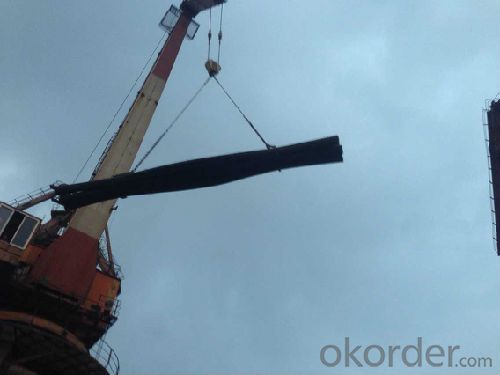
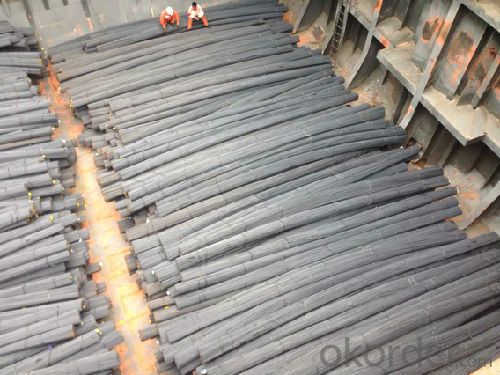
- Q: How do steel rebars affect the environmental sustainability of a structure?
- A structure's environmental sustainability can be influenced by steel rebars, which can have both positive and negative effects. On the positive side, steel rebars are an environmentally friendly choice because they are made from recycled materials. Steel is among the most recycled materials globally, which helps to decrease the demand for new resources and the associated environmental impacts of extraction and processing. Furthermore, steel rebars are highly durable and have a long lifespan, resulting in reduced maintenance and replacement requirements for structures reinforced with them. This in turn lessens the overall environmental impact related to the construction and demolition of structures. On the flip side, the production of steel rebars has some adverse environmental consequences. The manufacturing process involves high energy consumption, carbon emissions, and the release of pollutants into the atmosphere. Extracting and processing iron ore, as well as converting it into steel, can contribute to deforestation, air and water pollution, and habitat destruction. Nonetheless, sustainable manufacturing practices can help mitigate the negative impacts of steel rebars. For instance, employing energy-efficient technologies, utilizing renewable energy sources, and implementing strict emissions controls can assist in reducing the environmental footprint of steel production. Furthermore, the environmental sustainability of a structure also depends on the overall design and construction practices. By adopting sustainable design principles such as optimizing material usage, minimizing waste, and incorporating energy-efficient features, the negative effects of steel rebars can be further minimized. In conclusion, although the production process of steel rebars has some negative environmental impacts, their utilization in construction provides several sustainability advantages such as recycling, durability, and reduced maintenance requirements. By incorporating sustainable manufacturing practices and integrating them into environmentally conscious design and construction practices, the overall environmental sustainability of structures can be significantly improved.
- Q: Can steel rebars be used in offshore platform construction?
- Yes, steel rebars can be used in offshore platform construction. They are commonly used as reinforcement in concrete structures, providing strength and durability to withstand the harsh offshore environment and support the weight and loads of the platform.
- Q: How do steel rebars affect the constructability of complex architectural designs?
- Steel rebars play a crucial role in the constructability of complex architectural designs. These reinforced bars provide structural integrity and strength to concrete elements, making it possible to create intricate and innovative designs. Firstly, steel rebars allow architects to design structures with larger spans and heights, as they provide the necessary load-bearing capacity. This is particularly important in complex designs that involve cantilevers, soaring roofs, or suspended floors, as the rebars distribute the loads evenly and prevent structural failure. Moreover, steel rebars enhance the constructability of complex architectural designs by enabling the creation of slender and lightweight structures. Since rebars are strong and durable, they can be used to reinforce thin concrete elements, reducing the overall weight of the structure. This not only enhances the aesthetic appeal of the design but also minimizes the amount of material required, resulting in cost savings during construction. In addition, steel rebars offer flexibility during the construction process. They can be easily bent and shaped to match the intricate geometries and curves of complex architectural designs. This allows architects to realize their creative vision by incorporating unique and eye-catching elements into the structure. Furthermore, steel rebars contribute to the durability and longevity of complex architectural designs. By reinforcing the concrete, they increase its resistance to cracking, bending, and corrosion. This is especially important in areas prone to seismic activity or harsh weather conditions. The use of rebars ensures that the structure can withstand these challenges and remain intact over time. Overall, steel rebars significantly impact the constructability of complex architectural designs. Their strength, versatility, and ability to reinforce concrete elements make it possible to create innovative structures that are both visually appealing and structurally sound. Without the support of steel rebars, the construction of such complex designs would be much more challenging, if not impossible.
- Q: What is the typical weight per meter of a steel rebar?
- The weight per meter of a steel rebar may vary depending on its size and grade. Typically, a 10 mm mild steel rebar weighs approximately 0.616 kg/m. However, for larger sizes like a 20 mm rebar, the weight per meter can be around 2.47 kg/m. It should be noted that these values are approximate and may differ slightly based on manufacturing standards and regional regulations.
- Q: Can steel rebars be used in wastewater storage tanks?
- Indeed, wastewater storage tanks can utilize steel rebars. These rebars are frequently employed as reinforcement in concrete structures, including wastewater storage tanks. By imparting tensile strength to the concrete, the rebars enhance its resistance to cracking and bolster the overall structural integrity of the tank. Moreover, steel rebars possess corrosion-resistant properties, a crucial attribute given the inevitable exposure to corrosive elements in wastewater storage tanks. Consequently, the utilization of steel rebars in these tanks is a prevalent and efficacious practice within the construction industry.
- Q: How long do steel rebars typically last?
- The lifespan of steel rebars tends to be lengthy, enduring for numerous decades. Several factors come into play when determining the exact duration of their longevity, including the quality of the rebar, the environmental conditions it encounters, and the maintenance practices employed. Generally, steel rebars are designed to possess resistance against corrosion, a key factor influencing their durability. Nevertheless, as time passes, rebars may undergo some corrosion as a result of exposure to moisture, chemicals, or other corrosive substances. This corrosion has the potential to diminish their lifespan. The lifespan of steel rebars can be extended through regular inspections, maintenance, and the application of protective coatings. By providing adequate care, steel rebars can typically remain functional for 30 to 50 years, or possibly even longer.
- Q: What are the different methods of fixing steel rebars in formwork?
- There are several methods for fixing steel rebars in formwork, including tying, welding, and using mechanical connectors. Tying involves using wires or metal ties to secure the rebars together at intersections, while welding involves joining the rebars using heat. Mechanical connectors, on the other hand, use threaded couplers or rebar splices to connect the rebars together. The choice of method depends on factors such as project requirements, structural design, and local codes and regulations.
- Q: What are the different shapes of steel rebars?
- The different shapes of steel rebars include plain round bars, deformed bars, square bars, and rectangular bars.
- Q: What is the cost-effectiveness of using steel rebars?
- The cost-effectiveness of using steel rebars is generally considered to be high. Steel rebars provide strength and durability to reinforced concrete structures, making them a popular choice in construction. One of the key advantages of steel rebars is their long lifespan, which reduces the need for frequent repairs or replacements. This can result in significant cost savings over time, as the initial investment in steel rebars can be recouped through their extended service life. Additionally, steel rebars are readily available and have a comparatively low cost compared to alternative reinforcement materials, such as carbon fiber or fiberglass. This makes steel rebars a cost-effective choice for a wide range of construction projects. Moreover, steel rebars offer excellent tensile strength, allowing them to withstand heavy loads and seismic forces. By reinforcing concrete structures with steel rebars, the risk of structural failure or collapse is significantly reduced. This can lead to additional cost savings by minimizing the need for costly repairs or reconstruction in the event of a disaster. Furthermore, steel rebars are versatile and can be easily fabricated and customized to suit specific project requirements. This versatility allows for efficient installation and reduces labor costs, further enhancing the cost-effectiveness of using steel rebars. In conclusion, the cost-effectiveness of using steel rebars is high due to their long lifespan, comparatively low cost, excellent tensile strength, and versatility. By choosing steel rebars as a reinforcement material, construction projects can benefit from reduced maintenance and repair costs, improved structural integrity, and overall long-term savings.
- Q: How are steel rebars used in pre-stressed concrete structures?
- Steel rebars are used in pre-stressed concrete structures primarily to provide tensile strength and reinforcement. These rebars are strategically placed within the concrete to resist and distribute the forces acting on the structure. They are pre-stressed or tensioned before the concrete is poured, allowing them to counteract potential cracks and improve the overall structural integrity.
Send your message to us
High Quality Reinforcing Steel Rebars
- Loading Port:
- China Main Port
- Payment Terms:
- TT or LC
- Min Order Qty:
- -
- Supply Capability:
- -
OKorder Service Pledge
OKorder Financial Service
Similar products
Hot products
Hot Searches
Related keywords
